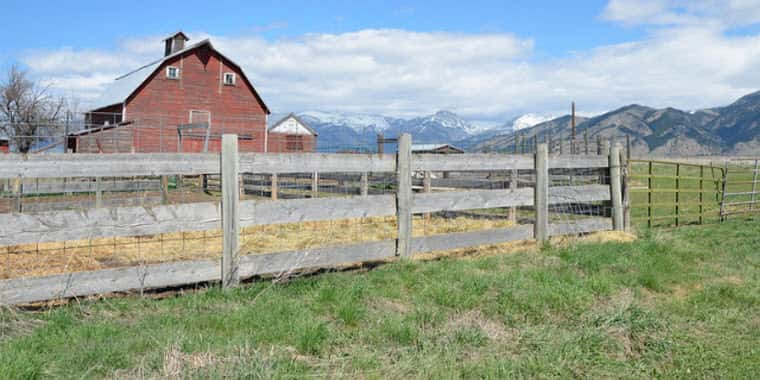The Boy Scout motto “be prepared” rings especially true for beginning farmers or ranchers planning to purchase land. Being a ready, willing and able buyer is essential to securing farm and ranch land, agreed a panel of real estate experts during a beginning farmer workshop Nov. 13 at the Montana Farm Bureau Annual Convention.
Colter DeVries, Clark Land Brokers, said often people want to talk to a real estate broker before visiting with a banker or loan agency. “However, I should be the person you talk to after you make a plan and address your financial needs. Ask yourself preliminary questions, such as how much savings or equity do I have for a down payment? Will I be consolidating closing costs and appraisal fees into my note or paying cash? Will a family member co-sign or guarantee a certain portion of the loan?”
Bo Kombol, Northwest Farm Credit Services, said the first step should be setting goals and determining how to achieve those goals. “Make a balance sheet. Do a real estate business plan. See if your plan will cash flow,” he advised. “Meet with a lender to see what you can actually afford.”
“Too many people overstate their income and understate their expenses,” said Bruce Johnson, Farm Service Agency. “Identify your strengths and weaknesses. Reconcile your beginning and ending cash. That will tell you what you can afford. First go to your local banker, but if you’re declined, shop all options from private and local to national banks and insurance companies. Remember that you will need a decline letter to be considered by the FSA.”
Once your plan has been deemed workable by a bank, the FSA or other credit sources such as the NWFCS or Montana Livestock Ag Credit, then visit with a buyer broker specializing in farms and ranches. It’s wise to have a letter of intent/pre-approval from the bank to show your broker that you are legitimate and can be taken seriously. This also provides you with an idea of what you will be able to realistically afford.
Allow sufficient time to get the loan and have work done before you even produce a buy-sell agreement. “People think it can all get done in 30 days, but that’s almost impossible. Give yourself 90-100 days,” said Kombol.
Johnson explained that FSA loans take an especially long time. “We can get a long way down the road before the buy/sell. First FSA needs to identify where property is. If there is going to be any construction or ground disturbance, we have to check for cultural resources. Our appraisal process is long. It’s a tricky process.”
DeVries said due diligence is essential. “Meet with the sellers and ask about the past performance of the land, the state of the water rights, relationships with neighbors and so forth. Have a vision and a budget for that vision. Remember, if something is wrong or it’s out of your financial comfort zone, no farm, ranch or parcel is so unique it cannot be passed up. Keep it strictly business and don’t marry the land.”
Finally, expand your knowledge base. Extension, the Farm Credit Business Management Center, the Natural Resource Conservation Service and other institutions offer webinars, conferences and on-line classes to provide information about finances, programs and creative ideas that can help new farmers achieve success.
Source: MT Farm Bureau Federation
Photo: NAN


